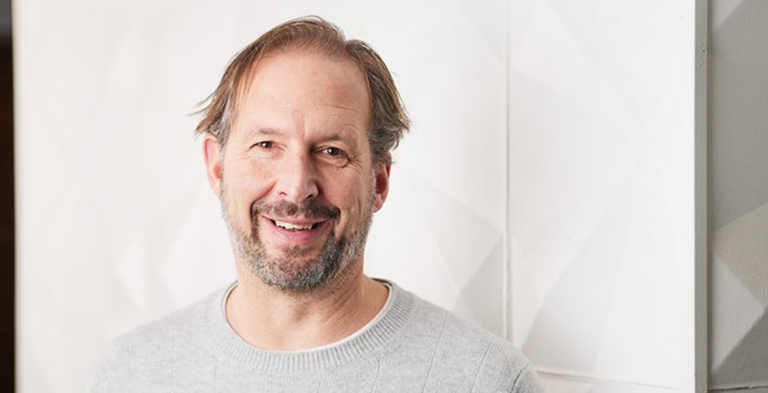While 2023 was a challenging year for many venture capital firms and market conditions impacted the level of deal activity overall, for Raven Indigenous Capital Partners the latter half of 2023 became one of the busiest the company has ever experienced, and it’s been ramping up ever since.


“For us, 2023 was a really mixed picture,” says Stephen Nairne, Chief Investment Officer at Vancouver-based Raven Indigenous Capital Partners. “The corrections in market conditions that started in 2022 deepened and things stalled. For the first time in our history, we did not complete any investments in the first two quarters of 2023. But we are now bracing ourselves for what I think will be a busy year.”
In the second half of last year, and into the first quarter of 2024 Raven Indigenous Capital saw a “real re-opening” of investment.
“The fourth quarter of 2023 was the busiest in the history of Raven Indigenous Capital Partners in terms of completing investments and that’s continued,” says Stephen. “We have six deals progressing this quarter, so we have definitely seen a shift. Founders are looking for capital and VCs have also been sitting on a lot of dry powder and are feeling pressure to deploy.”
Founders are dusting off growth plans they prepared in 2022 and are ready to get back to business.
“I don’t think we’re any different. We’re taking a very proactive stance coming into this year,” Stephen adds.
Raven Indigenous Capital Partners is a sector agnostic fund active in a variety of areas, including health tech and other high growth areas. In the last year it has made investments in AI and data science as well as educational technology opportunities using adaptive learning platforms and AR and VR to enhance learning.
“At the center of everything Raven does is a focus on advancing the wellbeing of Indigenous Peoples. We see the re-emergence of entrepreneurship as a pathway to self-reliance and economic sovereignty for Indigenous Peoples, and Indigenous entrepreneurs, especially women, showing up in a lot of non-traditional spaces and building scalable businesses that are not only profitable, but also have a transformational impact narrative.”
“It’s really thrilling to play a small, but catalytic role at Raven in revitalizing the Indigenous economy and leading some of the work around economic reconciliation,” he adds.
Looking back over the past five years, Stephen says he has observed the incredible resilience of Indigenous founders.
“They are uniquely well prepared, I think, to deal with adversity. We saw that during COVID when a lot of our founders were able to pivot very quickly. We didn’t lose a single company during COVID,” he says.
Looking to the year ahead
Raven is currently working on eight deals — six of which are with women founders. “Well over half of our founders are women and that does not occur in any other investment space,” says Stephen.
For example, AR/VR training company RaceRocks was founded by Anita Pawluk in 2010. She sells the company’s technology to the aerospace and defense industry.
Raven has also made investments in apparel and sustainable cosmetics as well as affordable housing.
“There’s a range of areas where we see a lot of need and where we have found Indigenous entrepreneurs and leadership teams. It’s exciting to see how many of these spaces are being filled by Indigenous women. When you read the statistics, typically about 2-3% of venture funding is going to women. For us, it’s over 50%,” says Stephen.
The focus right now is on business fundamentals and moving forward towards growth.
“We’re still not at that point where the focus is completely back on growth,” says Stephen. “We are seeing a lot of deal flow now that is very high quality. We’re actively building our team and our strategy in the U.S. Our fund is a North American fund, primarily in Canada, but we have three people now in the U.S. and we are very focused on building up that team.”
Working with Osler
The relationships Raven Indigenous Capital has formed with Osler began when Stephen first met now retired partner Ed Vandenberg.
“I met Ed when I was managing venture funds in Africa. Ed acted for us in forming a fund, but he was also acting for another party in a secondary investment opportunity. With Ed I found a practical, humble, solutions-oriented person. He was the entry point for me and when we set up Raven, Ed introduced me to [EHG partner] Justin Young in Vancouver, and it was the same experience,” he says.
“Justin is calm, creative and solutions focused. I know he’ll offer me practical advice based on his lived experience in these situations,” he says. “We’ve brought Justin and Manveer [Vancouver EHG associate Manveer Bisla] and Ed into a lot of challenging situations where they’ve made a point of really listening and leaning into what reconciliation means. [Vancouver partner] Laura Webb came in after Ed retired and we’ve developed a good working relationship with her as well.”
Advice for founders
For the year ahead, Stephen’s advice to founders is to focus on fundamentals and control costs.
“One of the things we have all learned is that we’re really focused on making sure companies are sufficiently capitalized for at least the next 12 to 18 months. A lot of companies have gone through bridging rounds so we are very driven now by managing progress toward milestones,” says Stephen. “We’ve really worked with our founders to costs under control that aren’t associated with growth and profitability.”